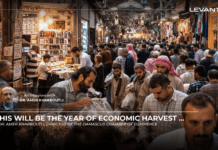
The World Health Organization (WHO) has issued an urgent call for international action to address the deteriorating healthcare system in Northern Syria. The ongoing crisis, marked by a severe shortage of medical personnel, has left many hospitals and health centers struggling to operate effectively.
Hanan Balkhi, the WHO’s regional director, highlighted the crisis in a recent statement, urging innovative solutions to stem the exodus of medical personnel from Syria. “The entire world has forgotten the destroyed healthcare system in Syria,” Balkhi said. “We need new and innovative thinking to stop the migration of medical personnel abroad.”
According to Agence France-Presse, Balkhi emphasized the dire conditions under which doctors are currently working. She stressed the need for better prospects and higher salaries for medical professionals, who often face low wages and inadequate working conditions. “Young doctors need to be given better prospects than practicing medicine in the manner of the fourth century in miserable conditions,” she said.
Balkhi noted that approximately half of Syria’s health workforce has fled the country. Currently, only 65% of hospitals and 62% of primary healthcare centers are operating at full capacity, grappling with severe shortages of medicine and equipment.
The regional director called for out-of-the-box thinking to retain the health workforce and attract new talent. “If surgeons do not have an operating room, anesthesia materials, professional nurses, and sterilization units, then what is the point of having a surgeon?” Balkhi questioned. “If you do not produce your medicine, and cannot import medicine, the doctor will be paralyzed in some way.”
Describing the situation in Syria as “catastrophic,” Balkhi highlighted the alarming number of people in need and the high rates of malnutrition among children. During her visit to Syria from May 11 to 16, she observed that many doctors were learning German alongside their medical studies, preparing to leave the country in search of better opportunities.
Balkhi suggested several measures to improve the situation, including involving young doctors in research projects and ensuring they have the necessary tools for surgical operations. She also emphasized the importance of virtual platforms to keep Syrian doctors connected with the international health community, given their inability to travel to conferences.
Additionally, Balkhi advocated for local production of essential medicines, such as painkillers, antibiotics, and antihypertensives, to address the severe shortages. She pointed out that power outages in Syria have exacerbated health issues, leading to burn injuries and respiratory infections as residents burn materials to cook food and heat their homes.
The WHO official urged donor countries to separate politics from health and to renew their commitment to humanitarian funding for Syria. Balkhi stressed the need for immediate and sustained international support to address the ongoing and growing health crisis in northern Syria.








